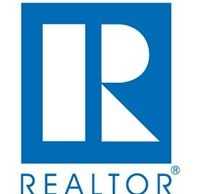States Clamp Down on Sharks; Legitimate Investors May Feel Sting
As the number of foreclosure filings climbs, increasing by 99.5 percent between the third quarter of 2006 and that of 2007, so does the number of laws designed to protect consumers from scams that pretend to help troubled home owners refinance.
It’s not that protections aren’t needed. Yet, as states busily try to stamp out such foreclosure “rescue” schemes, they’re enacting laws that sometimes snare legitimate investors. So if you’re buying foreclosure properties, or working with an investor client who is, you’ll need to exercise a little caution or you may end up on the wrong side of the law.
What New Laws Say
Several states, including Illinois (SB 2349), Maryland (SB 761), Minnesota (325N), New York (SB 4744), and Rhode Island (H 7650), have been busy crafting laws to stifle foreclosure fraud. The District of Columbia, Massachusetts, and other legislatures are considering similar legislation.
Many of these statutes are based on the oldest state mortgage fraud law, California Civil Codes 2945 and 1695. Its principal aim is to give home owners the opportunity to cancel a sale that occurs during the foreclosure process. The California law, and most other state statutes that have followed it, requires that a sales contract include a “notice of cancellation,” which gives a seller a clear method for stopping the sale of a home within a certain time frame — typically five business days.
The newer laws also try to protect homeowners’ equity during foreclosure. They diverge from the California code, however, in their efforts to implement this goal. The California statute prohibits foreclosure purchases that take “unconscionable advantage” of the owner in foreclosure. Minnesota’s statute, enacted in 2004, broke new ground by stipulating that home owners who sell while in foreclosure must receive “consideration” that equals at least 82 percent of the home’s fair market value. New York’s Home Equity Theft Prevention Act followed suit in 2006.
The most restrictive of these new laws is Illinois’ Mortgage Rescue Fraud Prevention Act, which took effect Jan. 1, 2007. Illinois lawmakers upped the ante by inserting an additional requirement that limits to 125 percent of the total debt owed the amount a foreclosure purchaser can make when selling the property back to the original home owner. There’s no such limit if the home is sold to someone else. Most state laws apply when the documents initiating foreclosure, such as notice of default or notice of pending foreclosure, are issued. However, in Illinois, the law applies to any borrower 90 days delinquent on a mortgage.
These narrow restrictions will almost certainly make it more difficult for legitimate home buyers and investors to purchase foreclosures except through an auction process. If you or your investor clients have plans to purchase foreclosed property already owned by a bank or to buy preforeclosures, sometimes called short sales, exercise care.
Consult with a knowledgeable real estate attorney to determine exactly what rules your client must follow to purchase or sell such homes. In some cases, poorly worded laws may be punishing legitimate buyers in an effort to punish scammers. Don’t get caught on the wrong side of this equation.
——————————————————————————–
A Scam in Five Acts
1. Bill, who has owned his home for nine years, loses his job and faces foreclosure.
2. Unscrupulous XYZ Finance says it will pay off the mortgage, cover closing costs, and give Bill $20,000 in cash, in return for a quit-claim deed.
3. XYZ also will let Bill stay in the house, paying rent at twice his former mortgage payment, with the promise he can buy the home back later.
4. Bill bites, figuring he’ll use the $20,000 to cover his rent until he gets a job. He deeds over the house to XYZ for about half the home’s value of $400,000, giving up his equity.
5. In a few months, Bill can’t pay the new, higher rent, and XYZ evicts him.
BY GINO CISCHKE
Writer Gino Cischke is the senior vice president and legal counsel at RealtyTrac Inc. The Irvine, Calif., company provides listings of foreclosed properties for consumers and real estate practitioners on its Web site.
Source: REALTOR® Magazine Online




